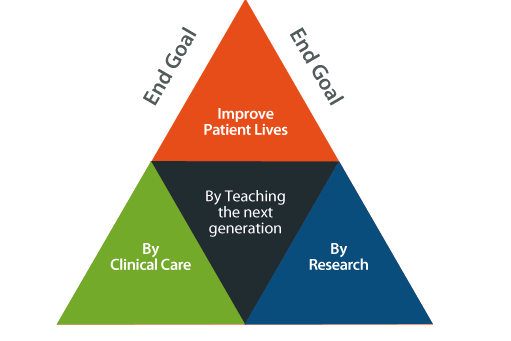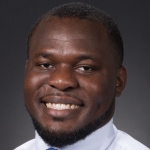The University of Arizona College of Medicine – Phoenix recently celebrated its 10th anniversary and with its 7th Match Day around the corner, the college has successfully graduated 273 physicians. As outstanding of an accomplishment that is, it pales in the comparison to the future potential this college holds. The Arizona Biomedical Collaborative was intended to bring science and technological advances to the Phoenix metropolitan area that could have impact locally and even beyond. That vision continues to evolve and is evidenced in the recent opening of the Biomedical Sciences Partnership Building.
As medical students, we have the fortuity of conveniently located research opportunities that can translate into significant and impactful scholarly projects and publications. From the leadership standpoint, the end goal is to produce physicians who are inclined to contribute to the wealth of existing medical knowledge through research. We have the privilege of having an interim dean who champions this effort through pushing the agenda of precision medicine and training of physician-scientists. With that in mind, this fall, along with the incoming class of aspiring physicians, we will welcome the first class of MD-PhD candidates, and they will have opportunity to go on to become successful in research, clinical practice, or both.
But that isn’t a premise that is only reserved for MD-PhDs, is it? An MD-PhD career can provide unique perspectives on questions about basic scientific discovery, medical intervention, or translational research. However, an MD is equally capable of having the same impact in a career track as a clinician-investigator. As I reflect on the Bridging the Next Generation of Academic Physicians Conference that took place on March 3rd-4th in Tucson, AZ, I realize that a successful path to a career in academic medicine is not always apparent to the average medical student. In academic medicine, passion about a particular topic/disease can lead a physician to a lifelong devotion to studying that area of medicine, which may lead to numerous publications, national accolades, and possibly tenure (but that, as I learned, is becoming less common due to dwindling NIH funding). A clinician investigator would typically devote >50% of their time to research and would have to find external funding for research all while continuing clinical practice. Academic medicine also pays significantly less than private practice, about 30% less on average than multispecialty/single specialty practice according to the Physician Compensation Report 2013.
So an astute medical student may ask, why go down a path where one is constantly under the pressure to secure funding, publish substantial findings, and make significantly less than their counterparts? The reason is passion. Passion is the reason why one voluntarily goes through a tortuous seven to 12 years of training and endures long nights of clinical rotations and endless studying. Passion evolves when one finds their niche or sweet spot, builds mastery, mentors others, innovates and becomes a world expert on a certain topic. If passion does not move you down this path, a few more selling points of a career in academic medicine include: tenured faculty being viewed as a more attractive candidates should they decide to leave their home institution, potential for leadership roles as deans or departmental heads, and extracurricular opportunities for physicians’ children and the higher frequency of spouse employment, to consider as challenges to committing the personal time needed to meet institutional tenure requirements.
Ogaga Ojameruaye is a medical student at The University of Arizona College of Medicine – Phoenix. He completed his BS in physiology at The University of Arizona and completed his MS in psychology at Grand Canyon University. Ogaga is passionate about translational medicine, bench-to-bedside research, and the discovery of new diagnostic tools as they contribute to the model of precision medicine.


